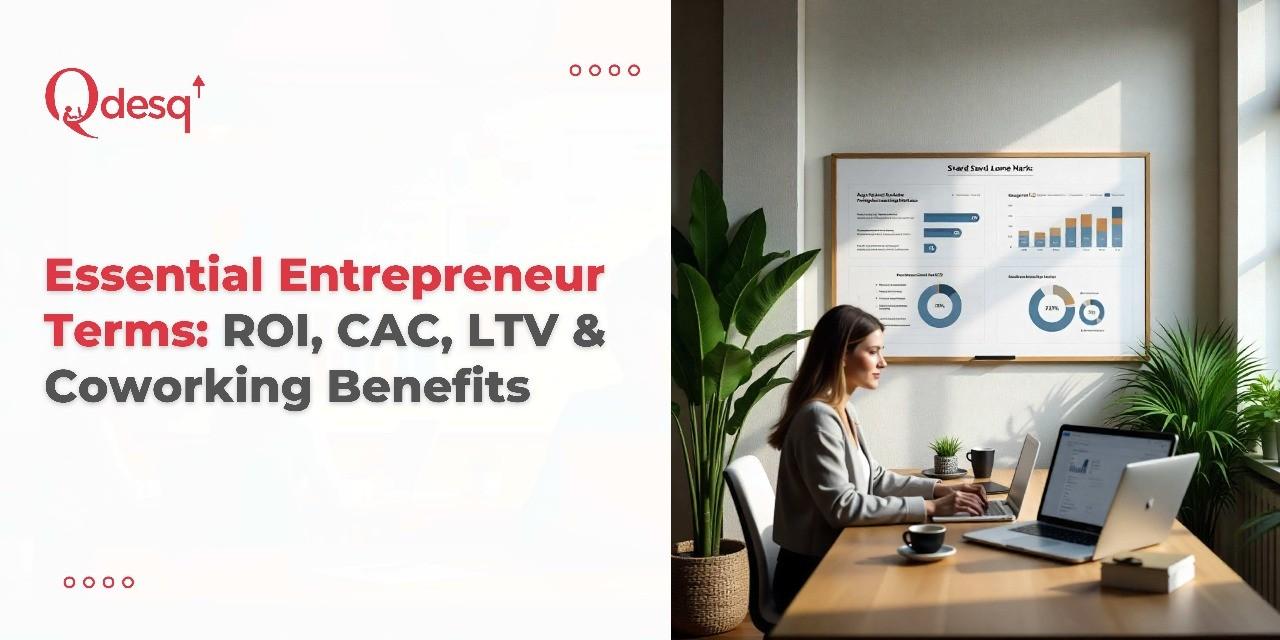Every entrepreneurial journey begins with a spark of an idea, but what fuels success is understanding the business landscape you step into. Terms like ROI, CAC, LTV, and others might seem daunting at first, yet mastering this language is essential. They help founders evaluate performance, control costs, and make informed decisions that pave the way for sustainable growth.
This blog simplifies these key business abbreviations and shows how flexible workspace choices, such as coworking, can support your startup ambitions in practical ways.
Why Business Abbreviations Matter
Entrepreneurship is much more than innovation — it’s a numbers game. Investors, marketers, and founders frequently use specific terms to discuss performance and growth. Without grasping these, it’s easy to feel lost or make decisions based on guesswork rather than data.
Understanding abbreviations like ROI (Return on Investment) and CAC (Customer Acquisition Cost) allows you to quantify success and communicate effectively with stakeholders. It brings clarity to your financials and strategy, turning vague business concepts into tangible targets.
ROI – Return on Investment
ROI measures how much profit you earn compared to what you invest. Simply put, it answers: “Is my investment worth it?”
The formula for ROI is:
ROI = Gain from Investment − Cost of Investment / Cost of Investment × 100
For example, if you spend ₹10,000 on advertising and generate ₹15,000 in sales, your ROI is 50%. This metric is crucial when evaluating everything from marketing campaigns to office rentals.
Flexible workspace options often improve ROI by reducing costs associated with traditional leases while enhancing productivity through a professional environment.
CAC – Customer Acquisition Cost
CAC is the average expense to gain a single customer. It includes marketing costs, sales efforts, and any promo expenses.
The formula goes:
CAC = Total Sales and Marketing Cost / Number of New Customers
If a company spends ₹30,000 on marketing and recruits 100 customers, the CAC equals ₹300. The goal is to lower CAC over time without compromising quality or reach.
Coworking spaces often enable organic networking and referrals, naturally reducing CAC through built-in business communities and collaboration.
LTV – Lifetime Value
LTV estimates the total revenue expected from a customer during their engagement with your brand. When your LTV exceeds CAC, your business model is sustainable.
This encourages founders to prioritise investing in customer satisfaction, retention, and upselling, rather than focusing solely on acquiring new customers. Coworking spaces in India foster these relationships by connecting entrepreneurs with clients, collaborators, and investors daily. These interactions can increase repeat business and customer loyalty.
COGS, MRR, and ARR – Key Financial Metrics
Understanding your costs and revenue streams is crucial. Here are three core terms:
- COGS (Cost of Goods Sold): How much it costs to produce your product or service.
- MRR (Monthly Recurring Revenue): Income you expect regularly every month—common with subscription models.
- ARR (Annual Recurring Revenue): The yearly projection of recurring revenue, helping in long-term financial planning.
Tracking these helps you spot profitability trends and adjust operations accordingly. Entrepreneurs who use coworking spaces benefit from flexible leases that keep fixed costs low and allow for smooth scaling up or down.
USP – Unique Selling Proposition
Your USP defines what makes your brand stand out in the crowded market. It answers the customer’s question: “Why should I choose you?”
Finding your USP is a continuous process. Interaction in shared workspaces allows real-time feedback from peers and clients, helping you refine what makes your business unique—whether it’s faster service, superior design, or innovative technology.
A clear USP shapes marketing messages and strengthens branding, making it easier to attract and retain customers.
The Power of Networking and Workspace Flexibility
Entrepreneurship thrives on connection. Coworking environments host diverse professionals including marketers, designers, developers, and business leaders in one place, creating a breeding ground for collaboration and growth.
Flexible office spaces enable startups to scale as needed without the burden of long-term leases or maintenance. They offer professional amenities that boost productivity while providing access to a vibrant entrepreneurial community. Many founders attribute their greatest opportunities to networking moments that happened in coworking spaces or events in shared offices.
Key Marketing Terms Every Founder Should Know
Successful business growth also requires understanding marketing concepts:
- CTR (Click-Through Rate): Percentage of people who click your ads or posts after seeing them.
- CPL (Cost per Lead): How much you spend to generate one potential customer.
- SEO (Search Engine Optimisation): Techniques to increase your website’s organic visibility in search engines.
- KPI (Key Performance Indicators): Measurable goals to track the success of campaigns or projects.
- CAG (Customer Acquisition Growth): Measures the rate at which new customers increase each month.
- A/B Testing: Testing two versions of a marketing asset to find the most effective one.
Using these metrics allows consistent monitoring and optimisation of marketing efforts, driving better results while controlling costs.
From Knowledge to Action
It’s not sufficient to just know these terms — applying them strategically separates successful ventures from struggling ones. Measuring ROI before every expense, optimising CAC alongside LTV, and keeping track of MRR help build resilient businesses over time.
When combined with a flexible operational setup like coworking, entrepreneurs gain agility. They spend less time on overhead and more on innovation and expansion. Flexibility, networking, and financial insight together create a powerful growth engine.
Conclusion
Being an entrepreneur means constantly learning and adapting. Grasping essential business abbreviations equips you to make data-driven choices and keep your startup on a strong growth trajectory.
Equally important is choosing the right workspace that supports your evolving business needs. Coworking spaces today offer not just desks, but also a community, flexibility, and scalability vital for startups looking to thrive.
To discover flexible coworking spaces that fit your pace and budget, connect with Qdesq workspace experts in your city. We help you connect with a network of ambitious professionals from your niche, enabling you to work smarter, build faster, and grow sustainably in the right environment that backs your vision.











